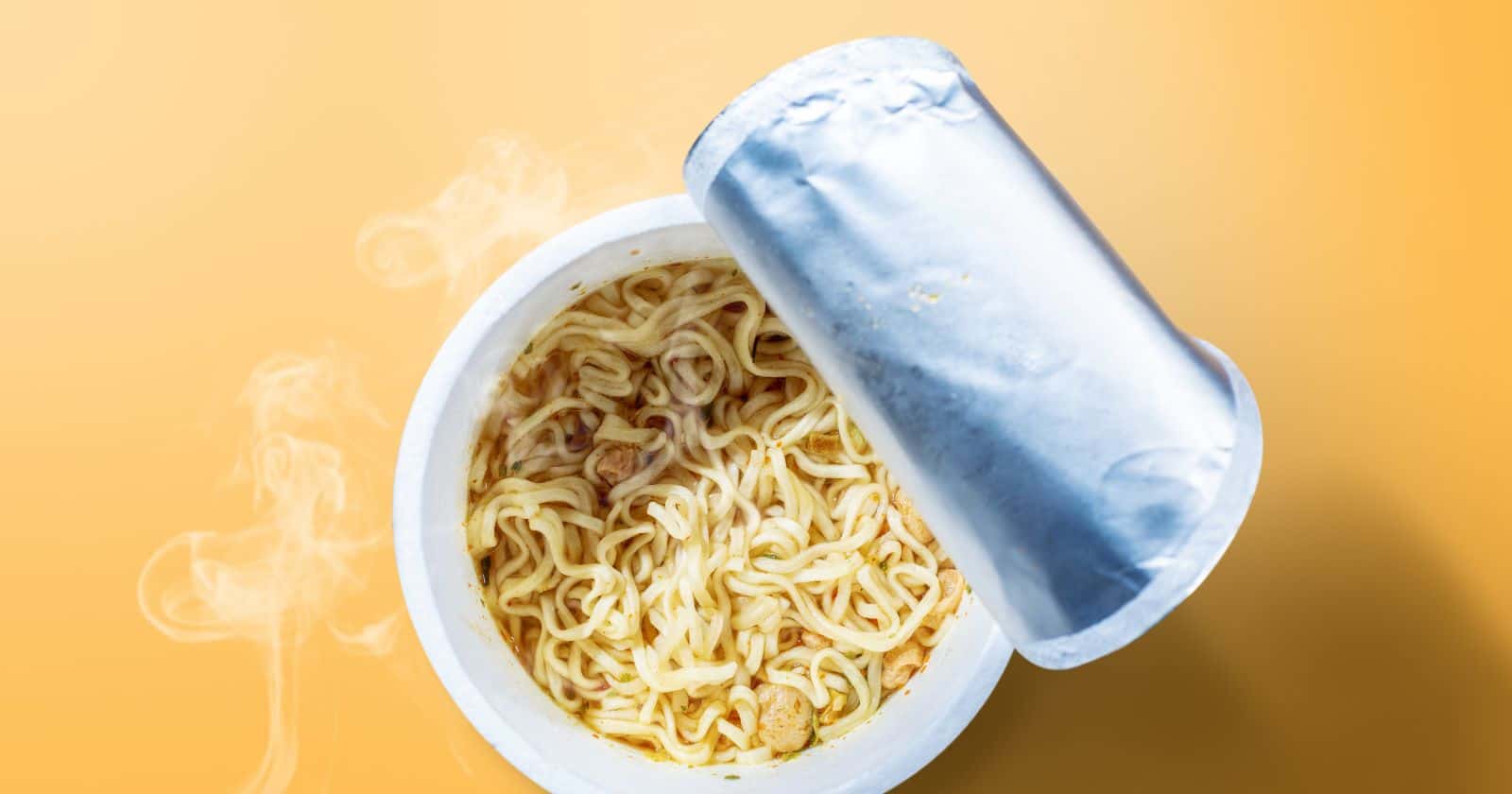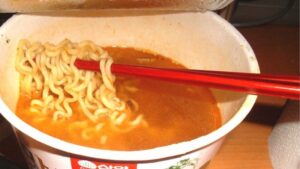For Muslims with a hankering for a steaming bowl of ramen, the answer isn’t always clear. The good news is that yes, Muslims can absolutely eat ramen! However, it depends entirely on the ingredients used. While some ramen variants are off-limits, there are many delicious halal ramen options to satisfy your noodle craving.
In this article, we’ll explore the world of halal ramen to help you enjoy this iconic dish without worry. We’ll look at:
- Understanding what makes ramen halal or haram
- Identifying permissible ramen ingredients
- Finding halal-certified ramen brands and restaurants
- Tips for choosing halal ramen flavors
- Exploring vegetarian and vegan ramen options
The key is knowing what ingredients to look for, where to find certified options, and how to swap in halal-friendly flavors. With an appetite for exploration, Muslims can discover a whole world of permissible and mouthwatering ramen. So grab your chopsticks and get ready to dig into that steaming bowl!
Understanding Halal and Haram in Ramen
Ramen can be either halal or haram depending on the ingredients used. Pork is considered haram (forbidden) for Muslims. However, Muslims can eat food prepared by anyone as long as it’s clean, healthy and made with halal ingredients.
What Makes Ramen Halal?
To make ramen halal, it’s essential to use only permissible ingredients. Here are some examples:
- Use chicken or beef instead of pork
- Opt for vegetable-based broths instead of pork broth
- Choose condiments like soy sauce and miso made without alcohol
- Avoid any meat not slaughtered according to Islamic guidelines
- Ensure preparation equipment is clean and free from cross-contamination
Some excellent halal-friendly ramen toppings include:
- Vegetables like scallions, bean sprouts, carrots and mushrooms
- Boiled or fried eggs for extra protein
- Seaweed or nori – a common ramen ingredient
- Halal-friendly sauces like sriracha or chili oil
Identifying Halal Ramen Ingredients
Knowing which ingredients are halal is key to enjoying permissible ramen. Look for:
- Wheat noodles – ramen staple made from wheat flour
- Soy sauce or miso – must be made without alcohol
- Nori – common ramen garnish
- Scallions, garlic, salt – halal seasonings
- Eggs – halal if from certified source
Halal certification also matters when choosing ramen. This confirms the food is prepared according to Islamic dietary laws. It’s vital to avoid haram ingredients like pork.
Finding Halal-Certified Ramen
Seeking out halal-certified ramen is necessary for Muslims wanting to enjoy this noodle dish. Here are some tips:
Check for Halal Signs and Certification
Look for halal logos, signs or certification on the restaurant’s exterior, menu or website. This indicates they follow Islamic dietary laws.
Research Online
Search halal-friendly travel sites, food blogs and social media for ramen restaurants. Using keywords like “halal ramen” or “Muslim-friendly ramen” can refine your search.
Choose Vegetarian Ramen
If no certified halal ramen is available, opt for vegetarian ramen. Ensure it’s not cooked with animal broth, pork or alcohol. Always ask if ingredients are halal.
Remember, Muslims can eat any lawful food prepared hygienically using halal ingredients. Avoid haram foods like pork, blood and carrion.
Tips for Picking Halal Ramen Flavors
When choosing halal ramen flavors, keep the dietary laws in mind. Look for halal ingredients like:
- Wheat noodles
- Non-alcoholic soy sauce or miso
- Nori (dried seaweed)
- Scallions, garlic, eggs, salt
Avoid haram ingredients like pork. Experiment with halal broths and seasonings to suit your tastes. Or make ramen at home with certified ingredients.
When eating out, look for halal-certified ramen or ask about the certification. With the right flavors, you can savor halal ramen guilt-free!
Exploring Vegetarian and Vegan Ramen
Vegetarian and vegan ramen let you enjoy this iconic dish while meeting dietary needs. With a few easy swaps, you can whip up tasty, halal-friendly bowls.
Flavorful Plant-Based Broths
Skip animal broths and use vegetable stock infused with ginger, onions, garlic and dried mushrooms. Ready-made vegan and halal broths are also available.
Protein-Packed Toppings
Tofu is a popular plant-based protein for ramen, absorbing flavors nicely when fried, grilled or marinated. Other options include tempeh, seitan and edamame.
Creative Seasonings and Toppings
Finish your ramen with halal-friendly toppings like nori, scallions, sprouts, spinach and mushrooms. Season with soy sauce, miso, chili oil or sesame seeds.
With some easy ingredient swaps, you can whip up vegetarian or vegan ramen that meets your dietary needs. Don’t be afraid to ask restaurants about ingredients to ensure they fit your requirements. Many happily accommodate special requests!
Key Takeaways: Can Muslims Eat Ramen?
- Ramen can be either halal or haram depending on ingredients used
- Pork and alcohol are haram – avoid at all costs
- Look for halal certification to ensure proper preparation
- Choose halal broths, proteins and toppings like eggs and vegetables
- Ask restaurants about halal ingredients if uncertain
- Opt for vegetarian or vegan ramen to accommodate needs
- With the right flavors, Muslims can happily slurp up halal ramen!
Satisfy your ramen craving without worry by understanding halal laws, finding certified options and exploring vegetarian recipes. With an appetite for exploration, Muslims can discover a world of permissible and delicious ramen. Grab your chopsticks and dig in!





